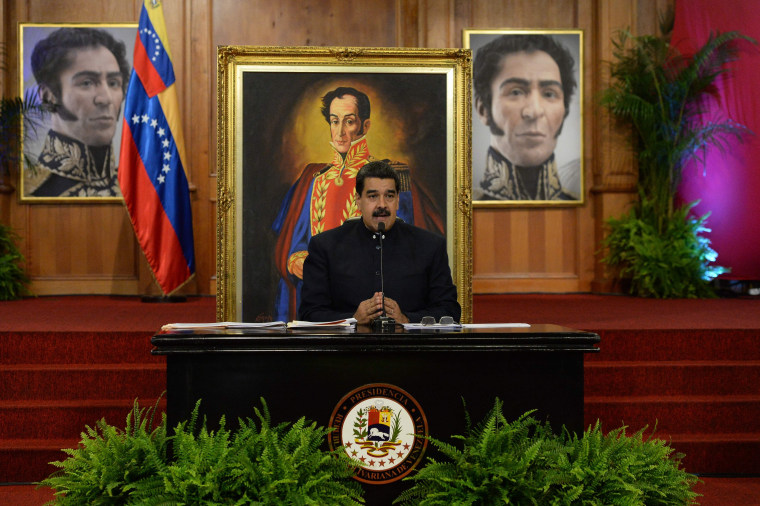BRUSSELS — European Union foreign ministers approved economic sanctions including an arms embargo on Venezuela on Monday, saying regional elections last month marred by reported irregularities had deepened the country’s crisis.
Anxious not to push Caracas any closer to economic and political collapse as authorities there begin debt restructuring talks, E.U. governments held back from targeting any individuals.

The bloc instead left names for a later stage to try to persuade President Nicholas Maduro to calm the situation.
“Everything we do it aimed at seeking dialogue between the government and the opposition to find a democratic and peaceful solution,” Spain’s foreign minister, Alfonso Dastis, told reporters at a meeting with his counterparts where the sanctions decision was made.
Venezuelan opposition leaders said last week they would resume efforts to hold a dialogue with Maduro, even though he had previously used the talks to stall for time instead of implementing serious reform.
Spain has long pushed for sanctions on those close to the president, whom Washington accuses of installing a dictatorship and slapped sanctions on in July, but the E.U. has been divided over whom to target.
The arms embargo adds Venezuela to an E.U. list that includes North Korea and Syria, where European defense companies can no longer do business and to which the sale of any goods deemed as being used for repression are also banned.
Britain sold 1.4 million pounds ($1.83 million) of arms to Venezuela from May 2010 to March, according to the Campaign Against Arms Trade (CAAT), which lobbies to end arms sales to repressive governments.
‘GRADUAL AND FLEXIBLE’ SANCTIONS
In a joint statement, all 28 E.U. ministers said the legal basis for individual travel bans to the Europe Union and the freezing of any Venezuelan assets in the bloc “will be used in a gradual and flexible manner and can be expanded”.
Representatives of Maduro’s government are due to meet investors in Caracas on Monday to discuss renegotiating $60 billion in foreign debt.
Some E.U. governments want to give former Spanish Prime Minister Jose Luis Rodriguez Zapatero, the E.U.’s main envoy for Venezuela, another chance to try negotiations despite unsuccessful efforts in 2016.
But in the statement, ministers said regional elections held in Venezuela on Oct. 15 were a turning point that had hardened the bloc’s position, having taken place amid “reported numerous irregularities.”
The results appeared to favor Maduro’s ruling Socialists, while polls had suggested the opposition would easily win a majority. In the end it won only a handful of governorships, according to the pro-government electoral board.
E.U. ministers will decide whom to target with sanctions at a later stage, but said they would focus on security forces and government ministers, as well as institutions accused of human rights violations and of not respecting democratic principles or the rule of law.
Experts say individual U.S. sanctions, while providing strong symbolism, have had little or no impact on Maduro’s policies and that oil-sector and financial sanctions may be the only way to force the Venezuelan government to change.
